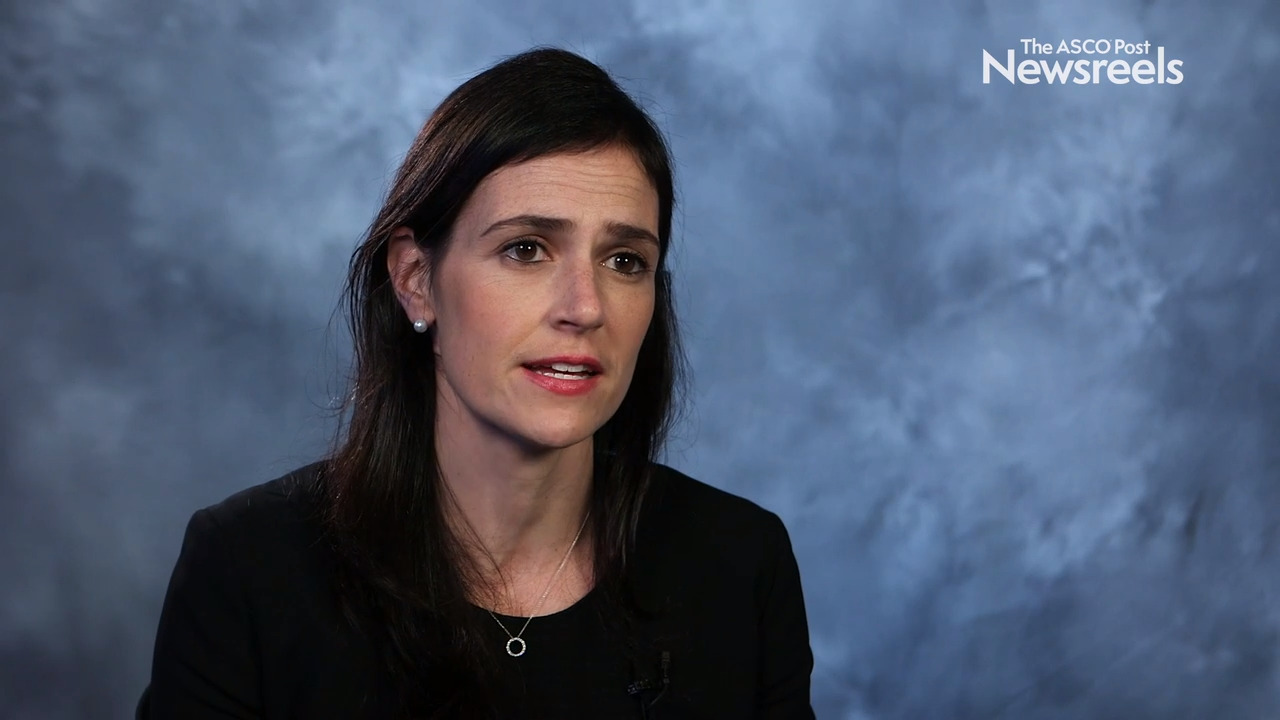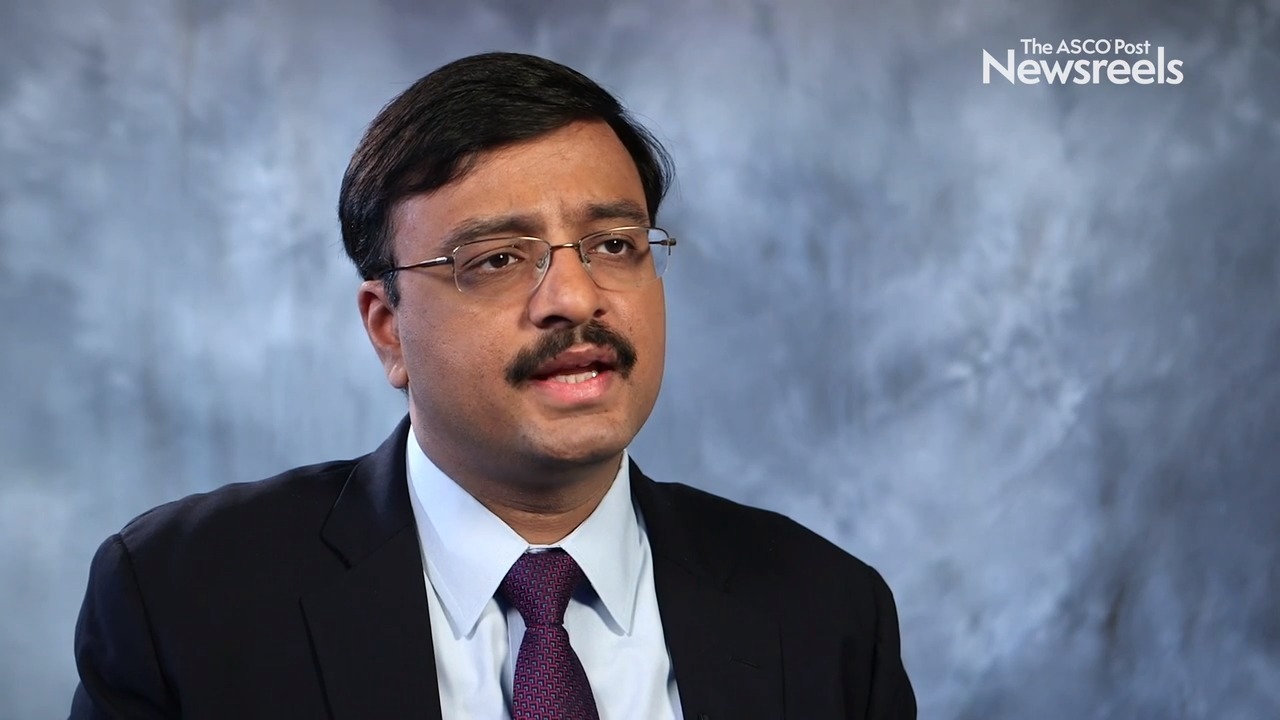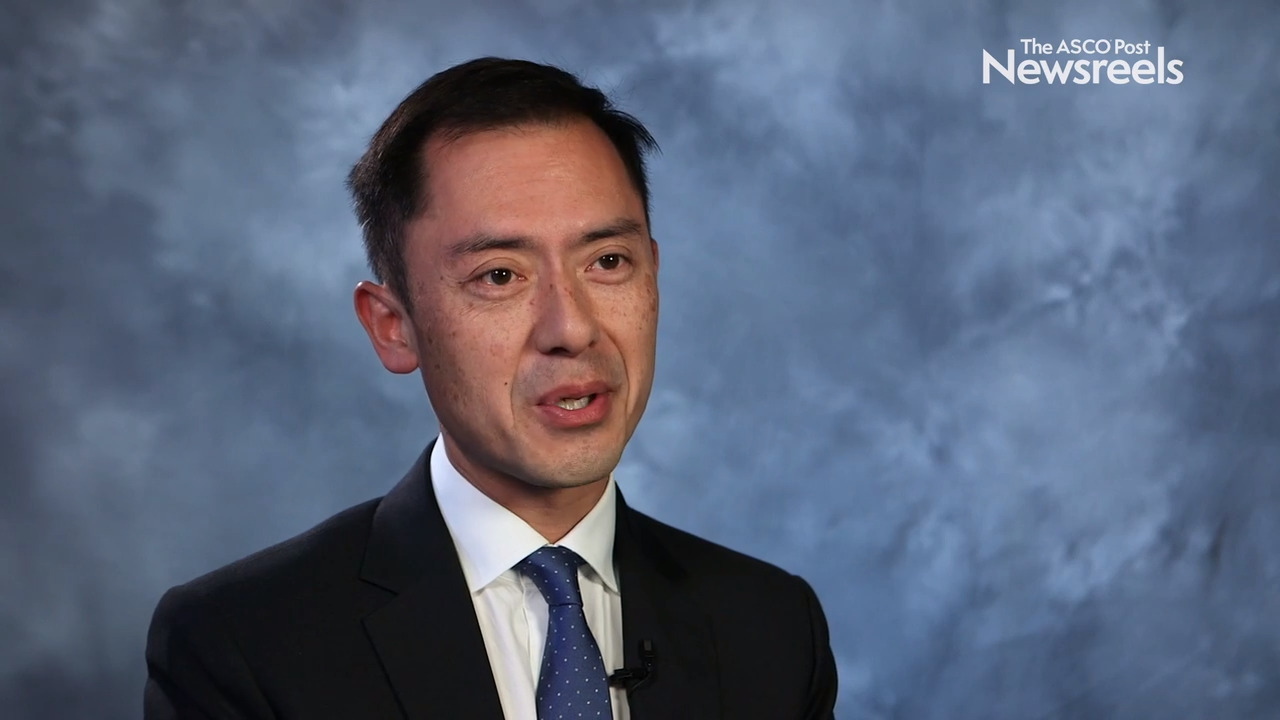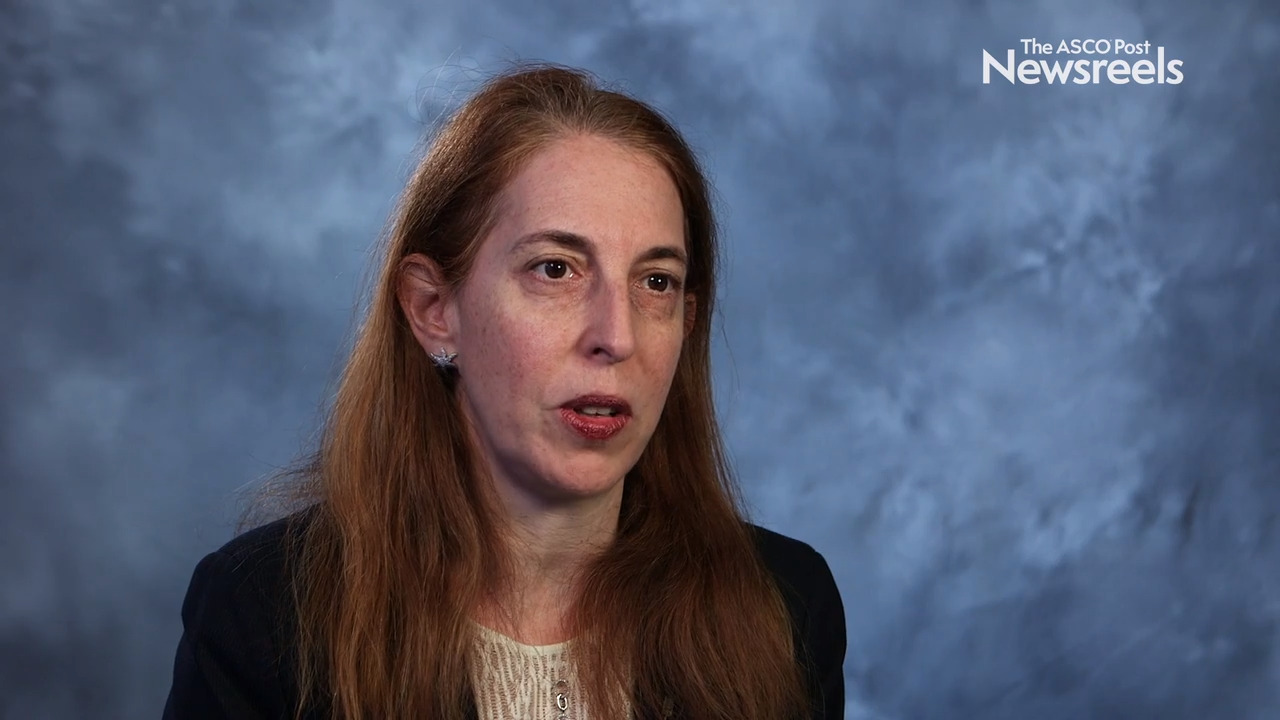Loretta J. Nastoupil, MD, on Follicular Lymphoma: Trial Results With Obinutuzumab/Lenalidomide
2019 ASH Annual Meeting & Exposition
Loretta J. Nastoupil, MD, of The University of Texas MD Anderson Cancer Center, discusses phase II study findings that showed obinutuzumab in combination with lenalidomide for patients with previously untreated, high tumor burden follicular lymphoma was associated with improved outcomes (Abstract 125).
Jennifer Crombie, MD, of Dana-Farber Cancer Institute, discusses early study results which showed that duvelisib plus venetoclax showed activity in patients with relapsed or refractory chronic lymphocytic leukemia/small lymphocytic lymphoma, with no dose-limiting toxicities observed (Abstract 1763).
Nitin Jain, MD, of The University of Texas MD Anderson Cancer Center, discusses findings from two studies showing that the combination of ibrutinib and venetoclax is an effective chemotherapy-free oral regimen for patients with high-risk, previously untreated chronic lymphocytic leukemia (Abstract 34).
Andrew H. Wei, MBBS, PhD, of The Alfred Hospital, Melbourne, discusses phase III findings on oral azacitidine (CC-486), the first treatment used in the maintenance setting shown to improve both overall and disease-free survival in patients with acute myeloid leukemia that is in remission following induction chemotherapy (Abstract LBA-3).
Catherine M. Diefenbach, MD, of the Perlmutter Cancer Center at NYU Langone, discusses a primary analysis of a phase Ib/II trial showing that the novel triplet combination of polatuzumab vedotin plus obinutuzumab/lenalidomide is safe and effective, with high complete response rates seen in a heavily pretreated and refractory population (Abstract 126).
Tait D. Shanafelt, MD, of Stanford University, discusses extended follow-up data that show ibrutinib plus rituximab improved clinical outcomes vs the standard therapy of fludarabine/cyclophosphamide/ rituximab in younger patients with previously untreated chronic lymphocytic leukemia (Abstract 33).





